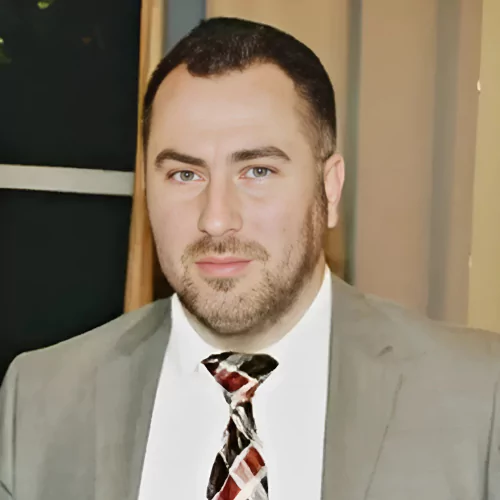Become a Certified Orgtologist through UNIORG, an approved and accredited provider of the International Orgtology Institute (IOI) as an Authorized Training Partner (ATP). This prestigious partnership opens the door for you to join the world’s largest orgtology practice network.
By completing the COP, you’ll meet the entry requirements to become a registered Orgtologist (Org Scientist) with the IOI. The IOI is tasked with setting quality standards and certification in orgtology practice, ensuring that your skills are globally recognized and endorsed.
Orgtologists around the world are making a significant impact as Transformation Managers, Strategy Managers, Org Intelligence Managers, Org Scientists, and external consultants. This emerging and rapidly growing profession is proving to be invaluable in driving organizational change and efficiency. Orgtologists are highly sought after in Public, Parastatal, Private, and NPO environments.
Take this course and gain the IOI-endorsed skills that will set you apart in the global market. Join the ranks of professionals who are transforming organizations and making a difference.
Your journey to becoming an Orgtologist starts here!
CERTIFIED ORGTOLOGIST
Can meaningfully contribute to the practice of orgtology.
SPECIALIST ORGTOLOGIST
Capable of leading specialized projects in:
• 5-V Model
• Business Model
• Executive Coaching
• Level Zero Model
• Organisational Culture
• Organisational Design
Organogram (Org Structure)
• Performance Management
• Process Engineering
• Management
PRINCIPAL ORGTOLOGIST
Capable of leading a team of specialist orgtologists. Must hold in five or more specialty areas.
Orgtology has a specific underlying theory, which is encapsulated by Hypothesis 2X. The hypothesis explains that an Org exists through a duality of concrete and abstract elements, such as operations (concrete) and strategy (abstract). We have two fields in orgtology that help us understand this hypothesis. The first if Orgamatics, where we study different theories on work, results, organisational intelligence, performance and relevance. The second Organamics, where we study different theories on the application of human intelligence, paradigm, Org identity, and human performance and relevance. Module one is therefore understanding the science of organisation from an orgtology perspective.
The study material for this module consists of the following guides:
This is a practical module where we work with the overall design of an organisation. This includes process engineering methodology, creating processes that enable change, developing an organisational culture framework that facilitates inclusion, and crafting an organogram that gives structure to human accountability and efficiency. This module therefore deals with developing a blueprint for Org operations in such a way that it optimises efficiency
The study material for this module consists of the following guides:
The study material for this module consists of the following guides:
The aim of Module Four is to internalise the orgtology theories on a personal level. Here we go back to the theories explained in Module One, and we apply them on personal level. Each student will receive a workbook with exercises where they will apply the theoretical framework of orgtology into their own leadership and management styles. On conclusion of this module, students should be able to apply orgtology theories n leadership, management, and personal capacities.
The study material for this module is a workbook with practical exercises that facilitates a coaching process that contains nine conversations. There are three conversations on Management, three conversations on Leadership, and three conversations on Relationships. The conversations are as follows:
Three Conversations on Management
Three Conversations on Leadership
Three Conversations on Relationships

Apply today and join the next cohort of Certified Orgtologists shaping the future of organisations.
Review the eligibility criteria to ensure you meet the minimum academic and professional requirements.
Fill in the application form with your personal, academic, and professional details.
Upload or email certified copies of your ID/passport and qualifications.
Your application will be reviewed, and you will be notified of the outcome via email.
Upon acceptance, proceed with payment to secure your place in the program.
Get access to the online campus and orientation materials before your official start date.
The course material empowered me to balance leading a high-performing organization while staying relevant. I will definitely apply these insights in my work.”
— Dalton Nxumalo, SBS
“This course broadened my perspective and is highly practical. I’m confident in applying its insights in my professional role.”
— Nompendulo Dlamini, Limkokwing University
“I sought a program to challenge my thinking and align with my passion for organizations and human behavior—this course delivered exactly that.”
— Barbara M., Compco
“The course content was clear, and the tutor sessions were highly valuable. This practical, postgraduate-level program is one I’d recommend to professionals.”
— Simaseko, ESWACAA
“I had a positive experience with the Online Campus and administrative support. The course was manageable and significantly enriched my learning.”
— Lomkhosi Magagula, CMAC
“My expectations were met. The COP provided clarity on managing a high-performing organization while staying relevant in a dynamic environment.”
— Dalton Nxumalo, SBS
“The program was informative and enlightening. Though technically demanding, it challenged me in a highly rewarding way.”
— Nonhlanhla Lukhele, MVA Fund
“The program is extremely useful, with orgtology principles that I can immediately apply in my workplace.”
— Nompendulo Dlamini, Limkokwing University
“The course was challenging yet highly valuable. The tutor’s knowledge and the content’s relevance to real-world work situations were exceptional.”
— Monde January, KOBWA
This program is ideal for professionals in leadership, strategy, consulting, organisational development, or change management roles who want to gain a deeper understanding of orgtology and apply it in real-world environments.
The COP is offered as an internationally certified professional program, endorsed by the International Orgtology Institute. It is not registered under South Africa’s SAQA framework but holds global professional recognition.
The program runs over 18 months, with tutor-led sessions, assignments, and practical coaching projects.
The program is fully online, designed for working professionals. It includes live virtual sessions, recorded content, downloadable material, and practical tasks.
Upon successful completion, you will be awarded the title Certified Orgtologist, with certification issued by the University of Orgtology and International Orgtology Institute.
Yes. Applicants should have at least a completed tertiary qualification (or equivalent experience), and experience in management, consulting, or related fields is advantageous.
Yes, flexible payment plans are available. Full payment secures immediate access, while installment options can be arranged before the program start date.
You’ll have access to a dedicated tutor, course administrator, discussion forums, and optional group support sessions.
There are four intakes per year: February, May, August, and November.
Complete the online application form, submit your supporting documents, and pay the application fee. Once accepted, you’ll receive your onboarding pack and orientation schedule.

Derek Hendrikz is a pioneering thought leader and the visionary founder of Orgtology — a groundbreaking discipline in the field of organisational science. With over 30 years of global consulting, leadership, and strategy experience, Derek has transformed how organisations think, operate, and evolve. As the creator of the Certified Orgtologist Programme (COP), he has trained and mentored professionals and executives in over 27 countries, delivering more than 100 high-impact organisational interventions across both public and private sectors. Derek’s legacy includes the development of REET Analysis — a powerful alternative to traditional strategic tools — and the duality model that underpins orgtology’s scientific and abstract dimensions. He is widely respected for his ability to decode complex systems, turning theory into actionable frameworks that drive performance, relevance, and sustainability. Beyond his consulting and academic contributions, Derek is a published author, keynote speaker, and lead architect behind the International Orgtology Institute (IOI). His work has directly influenced strategic thinking in multinational corporations, state institutions, and non-profit organisations alike. Known for his charismatic presence and sharp intellect, Derek doesn’t just facilitate change — he redefines what it means to lead and manage in the fourth industrial revolution.

Dr. Matthias Khatchadourian is a certified Orgtologist, internationally accredited Leadership Coach and Mentor (ICF, CMI, ILM Gold Standard), and one of the first professionals to complete the Certified Orgtologist Programme (COP) under Derek Hendrikz. With over 25 years of global experience, Matthias has equipped thousands of professionals and academic students in both retail and non-retail sectors across Eastern Europe, North Africa, and the Middle East — particularly in the Gulf region.
He has held senior leadership roles, including National Director of an American NGO in Eastern Europe, Group Training Manager in Dubai, General Manager of a management consultancy, and Regional Sales & Marketing Director for a Korean electronics firm.
With advanced leadership studies completed in Switzerland and the USA, Matthias brings a powerful blend of academic rigour and business insight. As a COP lecturer, he integrates orgtology principles with global leadership practices to empower strategic thinking, systems design, and performance transformation.

Mr. Muctaru Kabba is a distinguished Orgtologist and seasoned practitioner of organisational science, with over 25 years of experience across the public, private, and civic sectors. As one of the first certified orgtologists under Derek Hendrikz, he has been instrumental in shaping the development and application of orgtology throughout Southern Africa.
Muctaru’s work spans strategic consulting, financial management, and organisational transformation. He has actively contributed to the refinement of orgtology’s frameworks through seminars, research, and peer collaboration — ensuring the discipline remains responsive and practical in diverse contexts. His leadership extends into civil society, where he co-founded the Southern Africa Professional Trainers Association and continues to advocate for sustainable organisational development.
Renowned for his deep systems thinking and clarity of strategic insight, Muctaru empowers leaders to align performance with relevance. As a COP lecturer, he brings academic depth, real-world expertise, and a passion for mentoring the next generation of orgtologists.
Want to know more about becoming a Certified Orgtologist?
Enter your details and we’ll contact you with more information.
✔ Gain IOI-recognised orgtology competencies
✔ Learn at your own pace with expert tutor support
✔ Join a global community of professional Orgtologists
We’ll be in touch to guide you through everything.
